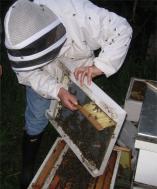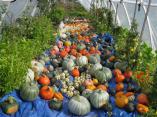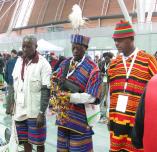As artists of many Olympic cities have discovered to their cost, when the lure of international trade beckons, arts funding goes out the door and into sports infrastructure, or roads, or trains, or any number of expensive and often worthy developments.
The Vancouver Olympics has caused both federal and provincial government purse-holders to grab and redirect funds intended for arts groups, tossing them into the Olympic abyss. The past year’s downturn has perhaps helped to accelerate the process in recent months.
Now BC Bookworld has had its funding pulled. If it goes down, so too perhaps its comprehensive reference offshoot, the BC Author Bank database. Rather than letting the loss of a $31,000 annual grant drown it, the magazine is asking interested readers to subscribe, for a pretty meagre $25 per year. Email them if you’re willing.
The individual amounts we’re talking are tiny, particularly if measured against Olympic expenditures, but they make the difference between life and death to non-profit arts organizations. BC already has one of the lowest levels of support for the arts in Canada, and the province wants to shrink it by 88%. Artists are hugely vulnerable to such cuts; it may appear to a population earning a steady wage that grants and subsidies are needless fripperies, but the point and benefit to the wider society of supporting the arts has been long and better explained and supported by independent studies and statistics.
What is disturbing here is to see money creating rifts between artists – who’s in and who’s out of the official arts presence at the games – and the introduction of high-flown arts planning; even though it must be obvious that the money has to come from somewhere. Obvious too that funding any grand Olympics arts program from the existing pot would necessarily cripple existing arts programs and that grand schemes often provide direct benefit to only the already well-rewarded big names.
We probably all know (having witnessed Montreal’s experience) that the costs to the local population of any Olympic event are astronomical, and are learning how the long-term “Olympic Effect” benefits international trade, not local industry. About which we should surely have questions – ethical as well as financial – after the hardships that people around the world have suffered this past year. And the very serious questions we should all have been asking for years about the effect of global trade and consumerism upon our world.
I am thinking dinosaurs today, but man-made dinosaurs with engines fuelled by collossal-sized greed. The Olympics has become a huge corporate machine in a world crawling with them. How do we small squashable individuals manage to keep from being crushed beneath it?
Speaking of which, this article about corporate ownership of arable land around the world came through my inbox today. Corporate greed seems hell-bent on removing human ability to feed ourselves in any sane and sustainable manner. Check out the article’s table that explains who’s behind the rush to control our food in the future.









